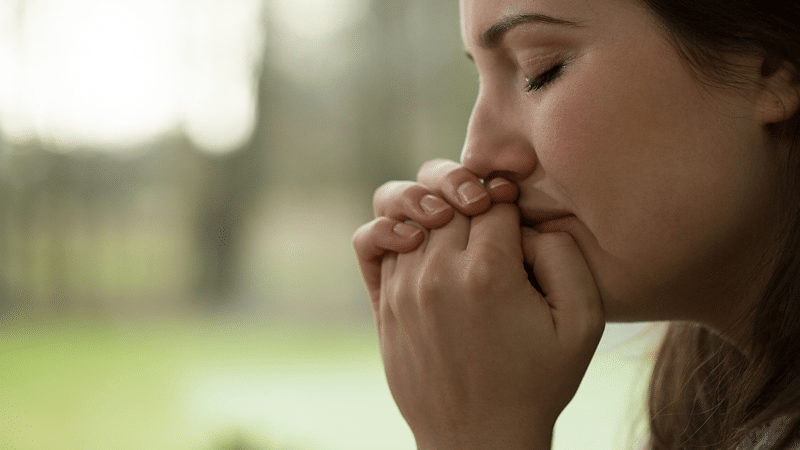Banning prayer is beyond the Scottish Government’s powers

COMMENT
It shouldn’t need saying. Banning prayers and pastoral care is repressive and wrong. It is an obvious breach of human rights. Yet the Scottish Government is being urged to do exactly this in the guise of a ban on “conversion therapy”.
Now a top KC warns that if Scotland continues on this “fundamentally illiberal” trajectory, it will be once again on a collision course with the courts for trying to exceed its powers.
In November 2021, the Scottish Government announced it would form an “Expert Advisory Group” to set out a roadmap for legislation on “conversion therapy”. The Group produced its recommendations in October this year.
The recommendations were warmly welcomed by the Scottish Government. Anyone who has looked at them with even a hint of scepticism, however, has come away deeply concerned. Church workers, feminist activists, mums and dads — all sorts of innocent people could find themselves on the wrong end of a prosecution if these proposals are adopted.
Thankfully one of the UK’s top KCs, Aidan O’Neill, has confirmed that the Scottish Government simply cannot legislate in this way.The new law may criminalise the ordinary work of churches
Mr O’Neill led for The Christian Institute in 2016, when it successfully had the Scottish Government’s hated “named person” scheme declared illegal for breaching the human rights of families. The CI has already warned the Scottish Government that it will initiate legal action if a new law criminalises the ordinary work of churches.
In a new 68-page written opinion for The CI, O’Neill explains that if the Scottish Government persists with its experts’ recommendations it would be exceeding its powers and inflicting a totalitarian law on the Scottish people.
Mr O’Neill says the proposals would have the “undoubted effect of criminalising much mainstream pastoral work of churches, mosques and synagogues and temples” and that “Prayers and sermons would be criminalised if their content did not conform to the new State requirements”.
The Scottish Government’s “experts” were appointed without any formal process. Those with concerns were excluded, whilst the Government appointed only activists who had publicly backed a broad ban. Legal experience was clearly thin on the ground.
As a result, its recommendations for new legislation have completely ignored the law already in place. Mr O’Neill is clear on why this is regrettable:
Whether any change in the law is needed — and what the likely effect of any proposed legal change might be — can only be determined against a background of an understanding of an account of the current state of the relevant law.
This is a vital point. LGBT people are thankfully already protected from physical and verbal abuse by existing law, just like everyone else. There is no need for new laws to prevent harmful and coercive practices.
These proposals go much, much further. The Scottish Government is considering a law that could criminalise churches and gender-critical feminists alike simply because their conversations around sex and gender don’t conform to a narrow, state-approved brand of LGBT politics. O’Neill explains:The new law may criminalise the ordinary work of churches
The Expert Group seems to brush aside issues around the fact that questions as to the proper place for the expression of sex and sexuality, and questions around gender identity and gender expression are matters of ongoing controversy and contention within Scotland.
It is clear, for example, that certain women’s groups which might be loosely described as Gender Critical Feminists have expressed serious concerns around the issue of “gender recognition”. And, separately, many mainstream traditional religious groups — whether in Islam, Judaism or Christianity or other faiths — hold to and affirm positions on the expression of sexuality and/or gender identity / gender expression and/or marriage which would be at odds with the liberal consensus position …
Prayers and sermons would be criminalised if their content did not conform to the new State requirements only to affirm, validate and support the identity and lived experience expressed and stated by an individual (but never to question or raise concerns about an individual’s expression of their sexuality, or their assertion of a “gender identity” or “gender expression” different from that associated with their birth sex).
In order to do this they propose measures which affect UK equality and discrimination law. Mr O’Neill explains that the power to do this is not devolved to Scotland:
The recommendations of the Expert Group go far beyond a simple restatement or codification of the relevant law which might currently be prayed in this area. Instead, the recommendations seek to innovate upon and make substantial changes to the current law. Because of this, in my view, it would be beyond the powers of the Scottish Parliament to legislate along the terms recommended by the Expert Group.
In addition, the KC says the legislation would breach the European Convention on Human Rights — specifically Article 8 which protects family life, Article 9 which guarantees freedom of religion, Article 10 which guarantees freedom of expression and Article 11 which guarantees the right to association.
The Scottish Government and the Scottish Parliament must take Aidan O’Neill’s advice seriously. They may not like what Christians have to say about sexuality, or what feminists have to say about gender identity, but they can’t just criminalise opinions they don’t like.
This article was first published by The Critic and is reproduced with permission.

By Simon Calvert, Deputy Director